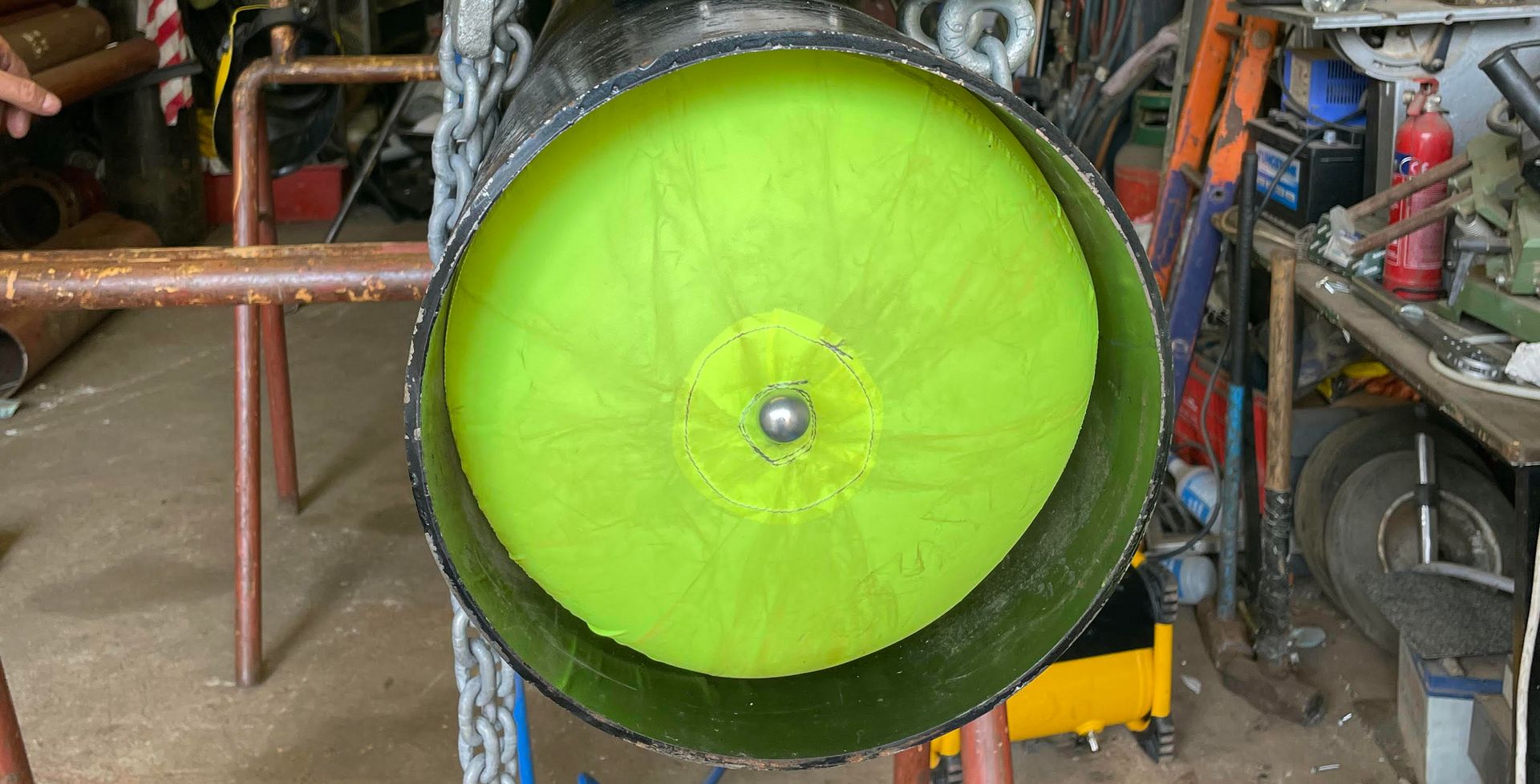We offer specialist gas Bagging Off and Squeezing Off services directly for customers in all industries, and as specialist subcontractors for commercial gas & mechanical engineers.
We can work with welded mild steel, cast iron or MDPE pipework, in sizes ranging from 3” to 12” and pressures up to 200mb.
The bagging off method of gas isolation is typically used by utility companies on the network side of the meter. We are one of a handful of specialist contractors in the country who are experienced in using this method on the end user's side of the gas meter.
“Bagging off” or “gas line stopping” is the temporary isolation of gas pipework to enable pipework intervention for repairs and maintenance.
It is required where there is no viable means of isolating the gas line without large scale disruption to the gas supply.
Normally this would typically involve large sections of pipework to be tested and purged with extended downtime.
Bagging off avoids this degree of disruption, allowing pipework maintenance without any costly downtime.
To arrange a free site visit or quote please provide your requirements and our engineers will be in touch to discuss your project.
The bagging off method of gas isolation is primarily used on low pressure mild steel or cast-iron pipework for the temporary isolation of a section pipework. The method can also be carried out on MDPE pipework.
The bagging off is achieved with out the use of any hot works. Temporary clamps with valves (teesets) are attached to outside of both the upstream and downstream pipework of the section that is to be isolated.
After checking for a tightness seal on the existing pipe, an under-pressure drilling rig is attached to the tee set with a hole saw and thread tap. The valve is opened and the pipe drilled and tapped, the drill is then withdrawn and the valve closed, the under-pressure drill is then removed and a swarf magnet is installed onto the teeset. The valve is opened and the swarf magnet inserted to clear the swarf. The magnet is withdrawn and the valve is closed.
A bag launcher is then attached to the teeset with a pre-tested bag loaded, the valve opened and the bag inserted, and inflated to the required pressure.
This process is repeated for each bag required. Further teesets can be installed if a bypass is required. We use the double bag method which requires two bags to be installed both upstream and downstream of the section of pipe to be isolated.
The isolated section can then be purged and the work on the pipe can begin. It is essential that the pressure in the bags is monitored at all times while the works are carried out. On completion and testing of the works, the bags can be deflated the gas purged, the bags removed and completion plugs fitted to the tapped holes in the pipe, and the teesets removed.
As with all our operations we take health and safety seriously and ensure all the team are fully aware of their roll in the works, and have the required experience and qualifications.
We carry out a site survey before the works begin and check the equipment for safe operation before arrival on site.

Bagging off gas pipework
We have used Ormond's hot tapping services for over 20 years, and will continue to do so

Ormond's response was quick, and their flexibility in scheduling was invaluable. Their expertise in live tapping ensured a smooth operation without any impact on production. We will certainly be using them for future projects.

Ormond Pipework made my job easy and I would highly recommend them

Ormond have done our hot tapping for the last 10 years, we trust them to always get the job done.
